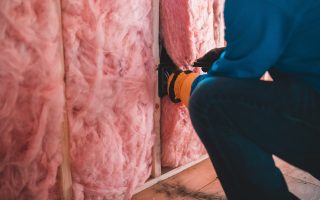Beekeeping in the Charente – Winter Preparations

Even though it’s difficult to get our heads around the idea of winter, it will be here before we know it and, as responsible beekeepers, we need to ensure that our bees are healthy enough to make it through to the spring. Last month we looked at how to assess the level of stores in the hives, and how to feed the bees if necessary. We also discussed varroa mite treatments, some of which may be ongoing given the average temperature in October. Most treatments, however, should have been administered before the end of the month as hives should not be opened up when the average daily temperature falls below around 12c.
So, October is when we carry out the final checks of the year. Weaker colonies may be bothered by robber bees or wasps on the lookout for easy pickings. You can help your bees defend their hives by fitting entrance reducers, simple plastic or metal grills which reduce the entrance gap down to a series of small arches. These devices are cheap to buy (no more than two euros) and also serve as mouse guards. Incredibly, mice can squeeze into gaps no less than 11mm wide and a warm sweet-smelling hive is very inviting on a cold evening…!
When carrying out final inspections, it’s important to find the queen. Usually evidence of a queen – eggs, larvae and sealed brood – would convince you that she’s present in the colony, but at this time of year there may be no visible brood as the queen may be ‘off lay’ depending on the weather and what instructions the colony has given her. Also, you probably won’t be opening up the hive again for a few months so you need to ensure they have a queen; if your colony is queenless then it won’t survive the winter. A queenless colony can be united with a ‘queen right’ colony, ie one that has a viable queen, and so can be saved.
The procedure for uniting two colonies is relatively simple: remove the roof and crown board from the hive that has a queen and place a large sheet of newspaper over the top of the brood box. Place a queen excluder on top of the paper to hold it in place then place the brood box of the queenless colony on top, and replace the crown board and roof. Over the next few days you will see small pieces of paper outside the united hive; the bees in the two brood boxes will have chewed their way through the paper and in doing so will have had time to get used to the smell and sound of each other, thereby avoiding any fighting. Colonies will unite peacefully when they are given this amount of time to get through the paper barrier. If the weather is kind and you are able to open the hive after a few days, you can rearrange the frames, moving any stores to above the brood nest. You can then leave the hive like this for the winter. The good thing about uniting colonies in this way is that they often have enough stores between them to see them through the winter months.
During the winter you have an opportunity to clean and assess your equipment, ordering in anything that you may need in the new year, for example, extra frames for carrying out a spring clean, supplies of wax sheets, extra hives….You can also spend hours browsing through seed catalogues and planning out what to plant to provide the bees with plenty of nectar when they start to forage again!
Good luck with your bees and, if you have any questions, please don’t hesitate to get in touch. Amanda Baughen, 13 Bees
Amanda and Kevin moved to Confolens (16) in 2015, opening a chambre d’hôte and launching their beekeeping experience holiday business. They live with five cats, two tortoises and several thousand bees, and enjoy sharing their adventures in the apiary with others.
Share to: Facebook Twitter LinkedIn Email
Leave a reply
Your email address will not be published. Required fields are marked *



